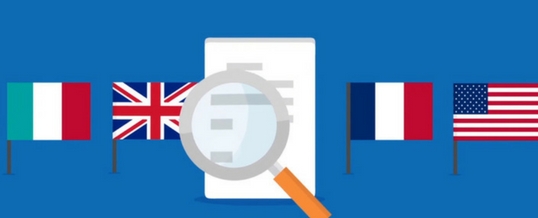
The IRS is at it again: They're now pursuing taxpayers who hide some of their assets in cryptocurrencies. They're very calculative, and they know very well why they do that: Cryptocurrencies like Bitcoin were perfect assets to invest and trade – all untracked. Unlike stocks and forex, they are largely an unregulated market.
But not anymore. At least in the eyes of the IRS. They knows how to 'negotiate' with exchanges, which eventually succumbed to the taxmen's demand for accessing users' financial information. And if the IRS can do it, taxmen in other countries can do it, too. China is reportedly closing local cryptocurrency exchanges, limiting Chinese Bitcoin traders' and investors' ability to trade freely.
The moral of the 'story' above is this: Whatever “new” methods introduced in the market to hide your assets legally, your Government will always try to gain some control over your assets for taxation purposes; to fund budget deficits and/or other agendas.
Eventually, asset owners will return (or at least have a second look) to the centuries-old financial system: Offshore banking.
The thing is, the Government of the world is trying to suffocate offshore banking sector, strangling its growth. “For the sake of recovering lost taxes for funding the Government program, they push tax transparency policies.
FATCA, AEoI/CRS,... you can call it what you want, but the idea is pretty similar, really: “Thou shalt not do tax evasion using offshore investments.”
In the process, the policies have successfully end secrecy in Switzerland and many other offshore financial centers. Asset owners who want to protect their wealth legally aren't given any wiggle room to navigate through legal loopholes.
So, what options do we have?
Surprise, surprise, the offshore banking sector is alive and well.
Sure, there are new rules and regulations to abide, causing some offshore jurisdictions to lose their footings in the offshore market. However, unlike what's reported by major media outlets, asset owners are still using offshore banks as necessary parts in their asset protection machine.
Let's take AEoI/CRS for example.
With the increasing requirements for automatic data exchanges and reporting, there's nowhere to hide your assets legally. 102 jurisdictions have committed to comply with the policies, which means there are about 150 other jurisdictions that have yet to express their interest in joining AEoI/CRS.
With the automatic data exchange, you can no longer hide your offshore accounts from your home country's Government.
There's a simple solution, though: Banking in non-AEoI jurisdictions.
Non-AEoI/CRS means that your bank in such jurisdiction won't share your data with your local government – unless your Government issues a “search warrant” to go through your account offshore.
That makes (non-AEoI) offshore jurisdictions attractive. Countries like Albania, Macedonia, Vatican City, Jamaica, Ecuador, Peru, Egypt, Morocco, are some of the jurisdictions that aren't (or haven't) committed to AEoI/CRS.
“Why don't we bank in any of those jurisdictions?” you suggest. While it's a good idea, unfortunately, things can be too good to be true: Not many non-AEoI jurisdictions suitable for you. But why?
The answer is prohibited jurisdictions. Based on the list of one of our offshore banking partners, the list of prohibited countries is long, containing most of the 150+ non AEoI countries.
Those jurisdictions are prohibited largely because they aren't stable politically and/or economically, which automatically makes them unsafe places to secure your assets in. Another reason is pretty much about the jurisdictions' policies, which simply don't open accounts for foreign clients.
What options are left?
Not much, unfortunately. But there is one non-AEoI jurisdiction that we should mention earlier: The United States of America.
Quite a surprising reality to many, but the United States is, indeed, the only big country in the non-AEoI list. Not only that, but the U.S. also refuses to make any reciprocal information exchange commitments.
In other words, The United States want offshore jurisdictions to comply with sharing U.S. citizens' asset information using FATCA policies – but don't want to reciprocate with anybody.
Such policies are what makes the U.S. allegedly the world's biggest and strongest offshore jurisdiction.
USA: The land of (offshore) opportunities
Getting your business incorporated in the U.S. offers you a truckload of benefits, to name a few:
- - Several reputable jurisdictions to choose from, with the strongest, arguably being Delaware, a U.S. state that's the headquarter of more than one million corporations – more than the state's population.
- - Top rated secrecy, ranked fifth in the Tax Justice Network's 2011 Financial Secrecy Index.
- - Delaware's corporate-friendly laws attract more than 50 percent of all U.S. publicly traded companies to call the state their 'home.'
Takeaway
We'd like to stress the importance of doing your own (preliminary) research, and move on to consulting with your trusted tax consultant, a lawyer specializing in International tax laws, and professional incorporation services.
In answering the questions posed in the title, there are actually more countries that aren't committed to AEoI/CRS (yet.) Unfortunately, most of them are either unsuitable for your asset protection plan or simply aren't open for foreign account opening.
However, there's one jurisdiction the United States - stands out among the rest for some good reasons. We recommend for you to pay attention to the U.S. and see whether the jurisdiction is suitable for your secrecy-focused asset protection plan.
You can consult with us for free about your offshore (and onshore) needs, including providing sound advice that comes from our years of serving both businesses and individual.
SEP
2017

Table of Contents